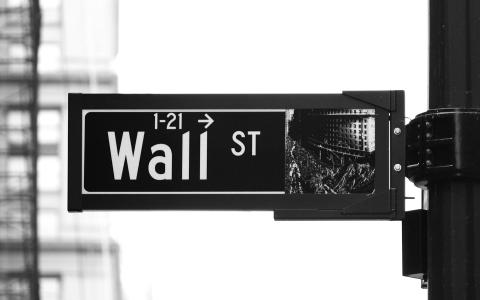
(Reuters) - While U.S. financial markets debate the timing of interest rate cuts, one tail-risk hedge fund is warning that investors should make the most of recent economic optimism while it lasts, as a shift to lower rates will signal a dramatic market crash.
"This is a case of be careful what you wish for," said Mark Spitznagel, chief investment officer and founder of Universa, a $16 billion hedge fund specializing in risk mitigation against "black swan" events - unpredictable and high-impact drivers of market volatility.
Spitznagel's view is not widely held. The much-anticipated shift to a less restrictive monetary policy by the Federal Reserve has helped buoy stocks and bonds in recent months, although signs of stubborn inflation have eroded expectations for how deeply the central bank will be able to cut interest rates in 2024.
Spitznagel argues that such a shift would likely take place only when economic conditions deteriorate, creating a challenging environment for markets.
"People think it's a good thing the Federal Reserve is dovish, and they're going to cut interest rates ... but they're going to cut interest rates when it's clear the economy is turning into a recession, and they will be cutting interest rates in a panicked fashion when this market is crashing,” Spitznagel said in an interview with Reuters.
Funds such as Universa often use credit default swaps, stock options and other derivatives to profit from severe market dislocations. Generally they are cheap bets for a big, long-shot payoff that otherwise are a drag on the portfolio, much like monthly insurance policy payments.
Some of the funds, including Universa, were big winners during the extreme dislocations that rocked markets in the early days of the Covid-19 pandemic in 2020.
These days, Spitznagel is skeptical of the idea that the U.S. economy has entered a so-called “no landing” scenario, where growth continues apace despite higher interest rates.
"It's not different this time," he said. Higher interest rates will eventually pop "the greatest credit bubble in human history," he said.
The Fed has raised interest rates by 525 basis points since early 2022 to head off a surge in inflation. Spitznagel believes, however, that excesses built up in the years of ultra-loose monetary policy that the U.S. saw since the 2008 global financial crisis have not yet been squeezed out of the economy.
"This economy is built on low interest rates," said Spitznagel. "There are lag effects when you reset interest rates like we had."
Investors should take advantage of the current "goldilocks" environment, he said, referring to market hopes that the Fed can bring down consumer prices without hurting the economy.
"I think that there's going to be a lot more positive euphoric sentiment before this thing is over," he said.
By Davide Barbuscia and Carolina Mandl
Editing by Ira Iosebashvili and Hugh Lawson



